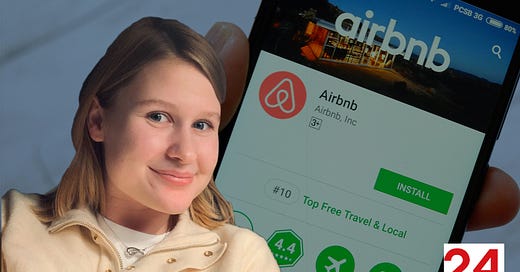Airbnb, an online marketplace focused on short-term homestays, is the number one tool for traveling the world and discovering unbeaten paths. This sounds too good to be true, right? Well, Airbnb, despite all its benefits and perks, has one chunky downside: the ridiculous and unnecessary cleaning tasks that end users have to do on top of paying that pric…
Keep reading with a 7-day free trial
Subscribe to 24Hour Journal to keep reading this post and get 7 days of free access to the full post archives.



